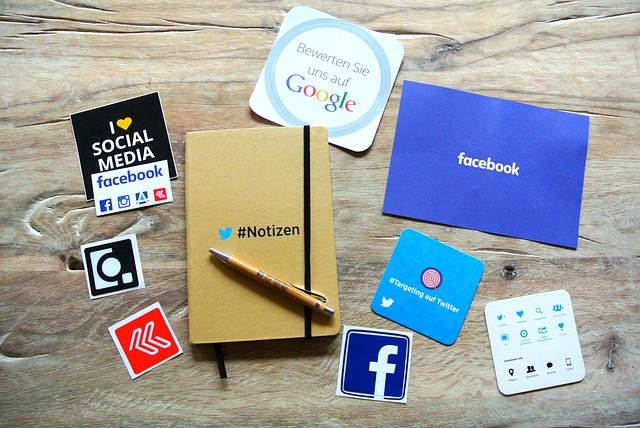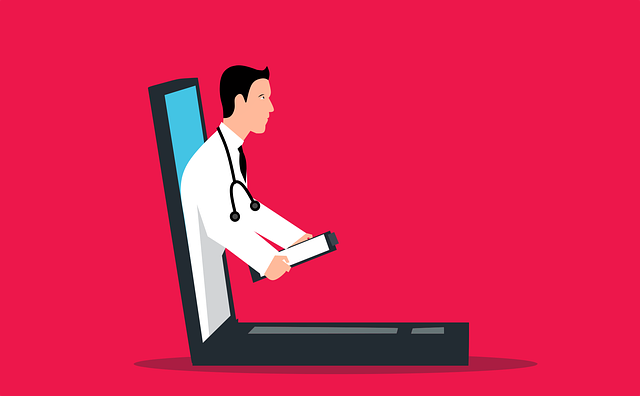In today's competitive healthcare market, healthcare marketing services are vital for practices to stand out and attract patients. This holistic approach leverages digital technologies and evidence-based strategies across diverse disciplines like:
Digital advertising & social media management: Building brand awareness and trust through targeted campaigns.
Content creation: Engaging content (including visual elements and SEO) humanizes complex medical concepts and drives online visibility.
Social media engagement: Two-way communication fosters relationships, strengthens reputations, and increases website traffic.
Search engine optimization (SEO): Enhances online rankings through strategic keywords, content, and backlinks to drive organic patient acquisition.
Patient testimonials & reviews: Build trust and demonstrate exceptional care by showcasing genuine experiences.
Data analytics: Enables data-driven decisions, campaign optimization, and precise target messaging.
Ethical practices, transparency, and patient consent are paramount in this landscape to ensure sustainable growth and improved clinical outcomes.
In today’s competitive healthcare landscape, effective medical marketing is no longer an option but a necessity. Full-service medical marketing encompasses a comprehensive range of strategies designed to engage patients and elevate your medical practice. From building a robust online presence and crafting compelling content to leveraging social media and optimizing search engine rankings, this approach ensures your practice stands out. By integrating healthcare marketing services, you can enhance patient trust and reputation while measuring success through data analytics, all while adhering to ethical guidelines.
Understanding Full-Service Medical Marketing: A Comprehensive Approach

In the competitive landscape of healthcare, successful medical practices and institutions rely on effective marketing strategies to stand out and attract patients. Full-service medical marketing encompasses a comprehensive suite of services designed to elevate brand visibility, engage target audiences, and drive patient acquisition. This holistic approach integrates various marketing disciplines, from digital advertising and social media management to content creation and public relations, all tailored to meet the unique needs of healthcare providers.
By leveraging cutting-edge digital technologies and evidence-based strategies, full-service medical marketing ensures that healthcare organizations can effectively communicate their value proposition, build trust with potential patients, and navigate the complex healthcare landscape. Through a strategic blend of online and offline initiatives, these services aim to create a compelling brand identity, foster patient loyalty, and ultimately improve clinical outcomes by increasing access to quality care.
The Role of Healthcare Marketing Services in Patient Engagement

In today’s competitive healthcare landscape, effective patient engagement is paramount for medical practices and hospitals to thrive. Healthcare marketing services play a pivotal role in this strategy by facilitating meaningful connections between healthcare providers and potential patients. Through tailored marketing campaigns, these services help institutions build brand awareness, establish trust, and ultimately encourage patient interaction. By leveraging digital platforms, social media, and targeted advertising, healthcare marketers can reach audiences with specific health concerns, offering valuable information and promoting preventative care.
The impact of well-executed healthcare marketing goes beyond initial outreach. It fosters a sense of community and loyalty among patients, encouraging regular check-ups and fostering long-term relationships. By engaging patients on their terms—whether through informative blogs, social media conversations, or personalized emails—healthcare marketers ensure that institutions remain at the forefront of patients’ minds when health-related needs arise. This proactive approach not only enhances patient retention but also contributes to improved healthcare outcomes.
Building a Strong Online Presence for Your Medical Practice

In today’s digital era, a strong online presence is crucial for any medical practice looking to thrive in the competitive healthcare marketing services landscape. Patients are increasingly turning to the internet to find and compare healthcare providers, making it essential for practices to have a robust online strategy. Building an effective website that’s optimized for search engines and mobile devices acts as a virtual storefront, showcasing your services, doctor bios, patient testimonials, and more.
Regularly updating content with relevant blog posts, articles, and news can enhance your site’s visibility in search results while establishing your practice as a trusted authority in your field. Leveraging social media platforms and online directories further expands your reach, allowing you to connect directly with potential patients and showcase the unique aspects of your medical care.
Content Creation Strategies for Effective Medical Communication

In the realm of healthcare marketing services, content creation plays a pivotal role in effectively communicating with patients and stakeholders. A well-crafted content strategy ensures that medical information is accessible, engaging, and tailored to diverse audiences. This involves employing various techniques such as storytelling, which humanizes complex medical concepts, making them relatable and easier to understand. For instance, sharing patient success stories can inspire hope and build trust, whereas educational articles or videos broken down into digestible segments can simplify intricate procedures or diseases.
Visual elements like infographics and interactive content also enhance comprehension and engagement. These tools are especially valuable for social media platforms and websites where they capture attention quickly. Additionally, leveraging search engine optimization (SEO) techniques ensures that valuable content reaches the right people when they search for specific medical conditions or services. By integrating relevant keywords naturally into content, healthcare marketers can improve their online visibility and foster a stronger connection with potential patients, ultimately contributing to better health outcomes.
Leveraging Social Media in the Healthcare Industry

In today’s digital era, leveraging social media has become a powerful tool for healthcare marketing services. Platforms like Facebook, Instagram, and Twitter allow medical practices and hospitals to connect directly with patients, fostering trust and building a positive reputation. By sharing engaging content, including patient success stories, educational resources, and industry updates, healthcare organizations can engage their audience and establish themselves as thought leaders in their field.
Social media also facilitates two-way communication, enabling healthcare providers to receive feedback, answer questions, and address concerns promptly. This interactive approach not only improves patient satisfaction but also enhances the overall marketing strategy by showcasing a patient-centric focus. Effective use of social media in healthcare marketing can drive brand awareness, increase website traffic, and ultimately improve patient acquisition and retention.
Optimizing Search Engine Rankings for Medical Websites

In today’s digital era, a strong online presence is paramount for healthcare marketing services. Optimizing search engine rankings (SERPs) is a strategic approach to ensuring medical websites are visible and accessible to potential patients. By employing keyword-rich content, effective meta tags, and structured data markup, medical practices can significantly improve their search visibility. This involves understanding the specific terms and phrases patients use when seeking healthcare services and integrating these into website copy, blog posts, and other online content.
Additionally, building high-quality backlinks from reputable sources within the healthcare industry is crucial for enhancing SERPs. This includes securing mentions on authoritative medical directories, earning backlinks from respected health publications, and fostering partnerships with influential healthcare providers. Such efforts not only drive organic traffic to medical websites but also establish credibility and trust among potential patients, ultimately leading to increased patient engagement and better clinical outcomes.
Patient Testimonials and Reviews: Powering Trust and Reputation

Patient testimonials and reviews are invaluable assets in healthcare marketing services, serving as a powerful tool to build trust and enhance a clinic’s reputation. In today’s digital age, potential patients often turn to online platforms for insights and experiences shared by their peers. Positive patient feedback not only influences new visitors’ decisions but also reinforces existing patients’ loyalty. By showcasing genuine stories of recovery and satisfaction, healthcare providers can create a sense of credibility and care that is essential in the competitive medical landscape.
These testimonials act as social proof, providing concrete examples of exceptional patient care. They offer potential clients an understanding of what to expect and help alleviate concerns, fostering a deeper connection between the clinic and its community. Integrating these reviews into marketing strategies allows healthcare businesses to stand out, as they provide transparent insights into their services, ultimately driving more informed decisions and attracting a targeted audience.
Data Analytics in Medical Marketing: Measuring Success

In the realm of healthcare marketing services, data analytics is a game-changer that enables medical professionals and marketers to make informed decisions. By harnessing the power of numbers, they can measure the success of various campaigns and strategies in real time. This involves tracking key performance indicators (KPIs) such as website traffic, patient engagement, conversion rates, and more. With these insights, healthcare marketers can optimize their efforts, ensuring that resources are allocated effectively to reach and convert potential patients.
Moreover, data analytics allows for a deeper understanding of the target audience. By analyzing patient demographics, behaviors, and preferences, medical marketing teams can tailor their messages and offerings to specific segments. This precision targeting not only enhances the relevance of communication but also improves overall campaign performance. As the healthcare industry continues to evolve, leveraging data analytics becomes increasingly crucial for staying competitive and providing personalized care.
Ethical Considerations in Full-Service Medical Marketing

In the realm of full-service medical marketing, ethical considerations are paramount. As healthcare marketing services evolve to include digital strategies and innovative communication channels, it’s crucial to maintain transparency and honesty in all promotional activities. This means ensuring that marketing materials accurately represent the services offered, avoiding exaggerated claims about treatment outcomes, and adhering to regulatory guidelines set by governing bodies like the FDA or HIPAA. Respecting patient privacy is non-negotiable; healthcare marketers must implement robust data security measures to safeguard sensitive information.
Additionally, consent and informed understanding are key ethical principles. Marketing campaigns should clearly communicate risks, benefits, and alternatives associated with procedures or treatments. Marketers must also be mindful of their target audience, ensuring that messages are culturally sensitive and accessible. By prioritizing these ethical considerations, healthcare marketing services can build trust, foster positive relationships with patients, and ultimately contribute to better health outcomes.
